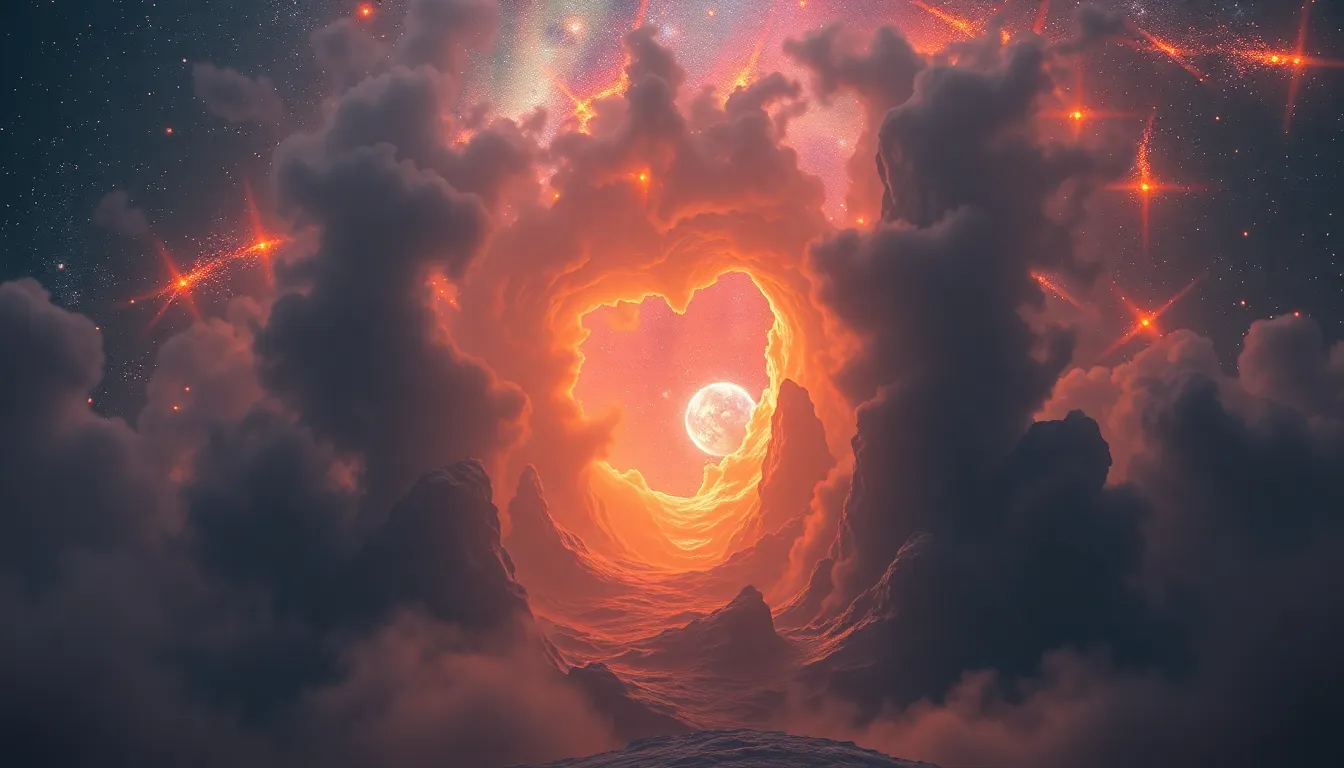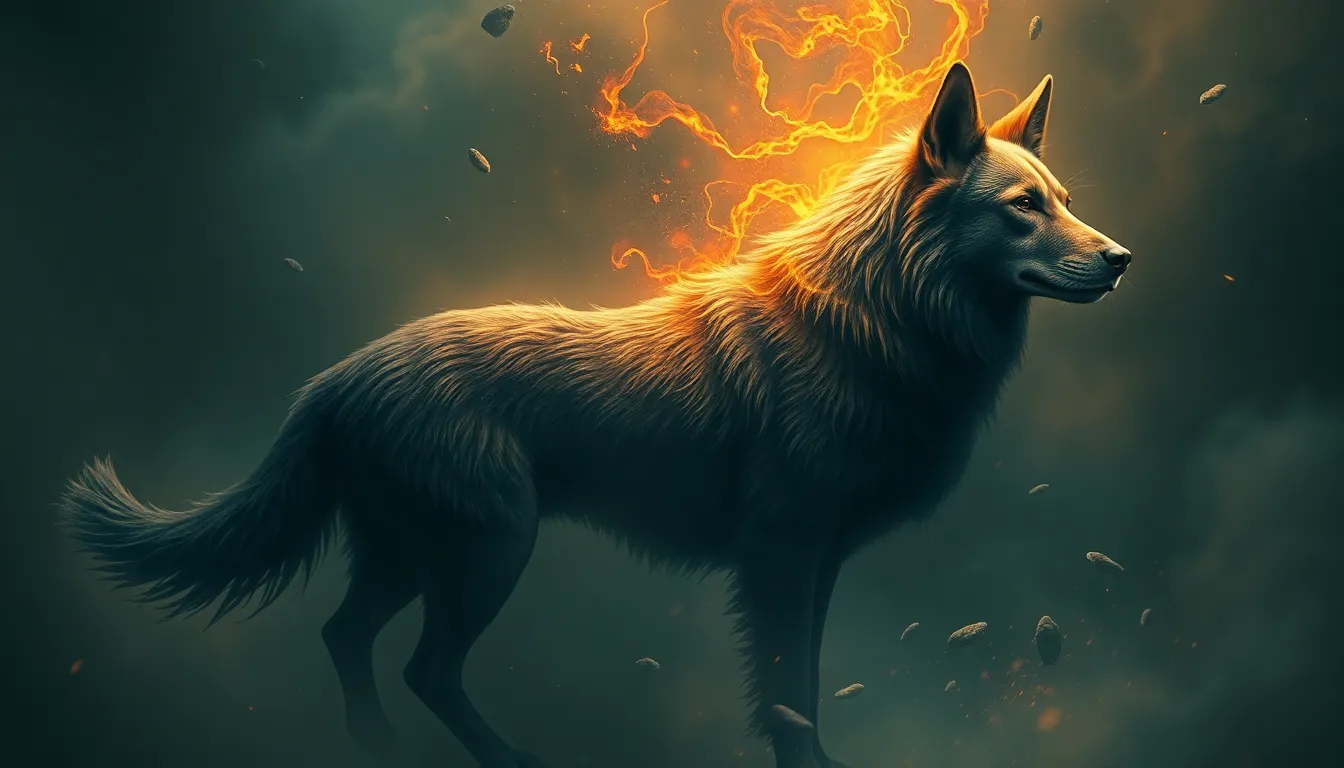The Myth of the Universe: How Creation Stories Shape Our Beliefs
Introduction
Creation stories, or myths of origin, define the narratives that societies construct to explain the genesis of the universe, life, and humanity itself. These stories are not merely fanciful tales; they hold profound significance in the cultural and spiritual lives of people across the globe. Myths serve as a lens through which individuals and communities interpret their existence and purpose, providing frameworks for understanding the cosmos and their place within it. This article explores the multifaceted role of creation stories, examining their impact on human beliefs, cultural identity, and the dialogue between myth and science.
The Nature of Myths: What Are Creation Stories?
Myths, particularly creation stories, function as foundational narratives that convey the values, beliefs, and historical experiences of a culture. They often feature gods, celestial beings, or cosmic events that bring order to chaos and explain the complexities of existence. It is essential to distinguish between myths, religion, and science:
- Myth: A traditional story that explains natural or social phenomena involving supernatural elements.
- Religion: A system of beliefs and practices centered around the worship of a deity or deities, often involving moral codes and rituals.
- Science: A methodical approach to understanding the natural world through observation, experimentation, and evidence-based conclusions.
Examples of creation stories abound in various cultures, including:
- The Judeo-Christian Genesis narrative, detailing God’s creation of the world in six days.
- The Hindu cosmology, which describes the universe’s cycles of creation and destruction through deities like Brahma, Vishnu, and Shiva.
- The Maori creation story, which recounts the emergence of the world from the separation of the sky father, Ranginui, and the earth mother, Papatuanuku.
The Significance of Creation Myths in Human History
Throughout history, creation myths have played a pivotal role in shaping ancient civilizations. These narratives were essential for:
- Providing explanations for natural phenomena and existential questions.
- Establishing moral and ethical codes that guided societal behavior.
- Fostering a sense of belonging and identity among community members.
Creation myths helped societies understand their origins, instilling a sense of purpose and direction. They contributed to cultural cohesion, allowing communities to share in a collective narrative that reinforced values and traditions.
Comparative Analysis of Major Creation Myths
Examining key creation stories reveals both similarities and differences in cultural perspectives:
- Genesis: Focuses on a monotheistic creation by God, emphasizing order and moral law.
- The Big Bang Theory: A scientific explanation grounded in physics, positing a cosmic explosion as the universe’s origin.
- Hindu Cosmology: Encompasses cyclical creations and destructions, reflecting the interconnectedness of life and the universe.
Common themes across these myths include:
- The transition from chaos to order.
- The establishment of a moral framework.
- The human connection to the divine or cosmic forces.
However, the implications of these stories vary significantly based on their cosmological perspectives, shaping how societies view existence and their roles within it.
The Psychological Impact of Creation Myths
Creation stories profoundly influence individual belief systems, shaping worldviews and moral frameworks. They provide:
- Psychological comfort in the face of existential uncertainty.
- A narrative structure that helps individuals make sense of their experiences.
- Guidance on ethical behavior, derived from the values embedded in these myths.
By offering explanations for life’s mysteries, creation myths foster a sense of connection to something greater than oneself, thus reinforcing individual and communal identities.
Creation Myths and Scientific Understanding
The interaction between creation myths and scientific understanding often generates tension. While myths provide spiritual and existential explanations, science seeks to understand the universe through empirical evidence. Key points of discussion include:
- The coexistence of faith and reason: Can they complement each other?
- The evolution of scientific theories, such as Darwinism, which challenge traditional creation narratives.
- The reinterpretation of myths in light of scientific discoveries, leading to a more nuanced understanding of both.
This dialogue is crucial as humanity navigates the complexities of existence and knowledge.
The Role of Modern Media in Shaping Creation Narratives
In contemporary society, modern media plays a significant role in shaping and reshaping creation narratives. Literature, film, and art often reinterpret traditional myths, leading to new understandings and beliefs. Notable influences include:
- Films like “Interstellar” and “The Tree of Life,” which explore cosmic themes and human existence.
- Literature that reimagines creation stories, such as “American Gods” by Neil Gaiman.
- The use of social media platforms to share and debate creation narratives, leading to the democratization of myth interpretation.
The impact of these media on public perception and belief is profound, often challenging established narratives and encouraging critical engagement with myths.
Cultural Appropriation and the Adaptation of Creation Myths
As societies increasingly interact in a globalized world, the borrowing and blending of creation myths across cultures become more common. This phenomenon raises important ethical considerations:
- The risk of cultural appropriation: When is it respectful to adapt a sacred story?
- The importance of understanding the original context and significance of these narratives.
- Examples of adaptation, such as in films or literature, can lead to both appreciation and misrepresentation.
Engaging with these stories requires sensitivity and awareness of their cultural significance.
Future of Creation Myths in a Globalized World
Creation stories continue to evolve in response to modern challenges, such as climate change, technological advancements, and social justice movements. Key aspects include:
- The adaptation of traditional myths to address contemporary issues.
- The exchange of stories among diverse cultures fostering mutual understanding.
- The potential for new myths to emerge as humanity grapples with current existential questions.
Globalization facilitates the transformation of creation stories, allowing for a rich tapestry of narratives that reflect the complexities of modern life.
Conclusion
Creation stories are vital in shaping our beliefs, providing a framework for understanding our existence and place in the universe. They offer insights into the human experience, reflecting cultural values and existential questions. As we continue to explore the relevance of myths in our lives, it is essential to appreciate their complexity and engage with them critically. By doing so, we can foster a deeper understanding of ourselves and the universe we inhabit.



